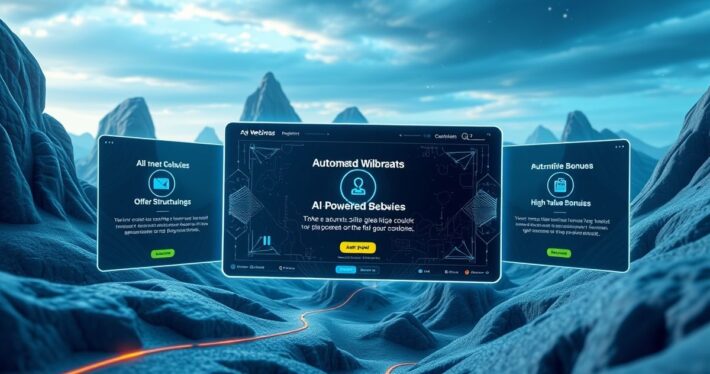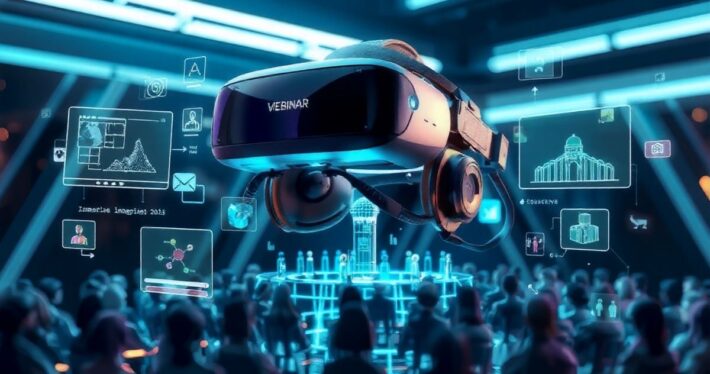AI breakthroughs to watch in the next five years.

The Future of AI: Breakthroughs That Will Shape the Next Five Years
Artificial intelligence is evolving at an unprecedented pace, and the next five years promise to be a transformative period for the technology. From artificial general intelligence (AGI) advancements to AI-driven healthcare, ethical AI frameworks, and beyond, the breakthroughs on the horizon will reshape industries, redefine innovation, and enhance human capabilities. If you’re wondering what’s next in the AI revolution, you’re in the right place. Let’s dive into the most exciting AI breakthroughs to watch—and why they matter.
1. Artificial General Intelligence (AGI): The Holy Grail of AI
AGI—AI systems that can understand, learn, and apply knowledge across a wide range of tasks, much like a human—has long been the ultimate goal of AI research. While we’re not there yet, the next five years could bring us closer than ever.
Researchers are making strides in areas like transfer learning (where AI applies knowledge from one domain to another) and self-supervised learning (where AI learns from unlabeled data). These advancements could pave the way for AGI by enabling AI to think more flexibly and adaptively.
But let’s be honest: AGI isn’t just about technical progress. It’s also about the ethical and societal implications. How do we ensure AGI aligns with human values? What safeguards do we need to prevent misuse? These are questions we’ll need to answer as AGI becomes more than just a theoretical concept.
2. AI in Healthcare: From Diagnostics to Personalized Medicine
Healthcare is one of the fields where AI’s potential is most exciting—and most impactful. Over the next five years, we’ll see AI revolutionize everything from diagnostics to drug discovery and personalized medicine.
Imagine AI systems that can analyze medical images with superhuman accuracy, detect diseases like cancer at their earliest stages, or predict patient outcomes based on complex data sets. These aren’t just hypotheticals—they’re already happening. For example, Google’s DeepMind has developed AI models that can detect eye diseases with 94% accuracy.
But the real game-changer? Personalized medicine. AI could enable treatments tailored to an individual’s genetic makeup, lifestyle, and medical history. This means better outcomes, fewer side effects, and more effective healthcare for everyone.
3. Ethical AI: Building Trust and Transparency
As AI becomes more integrated into our lives, ethical concerns are taking center stage. Over the next five years, we’ll see a major push toward ethical AI frameworks that prioritize fairness, accountability, and transparency.
Why does this matter? Let’s say an AI system is used to make hiring decisions. If the system is biased, it could unfairly disadvantage certain groups. Ethical AI aims to prevent such issues by ensuring algorithms are fair, explainable, and free from bias.
Companies like OpenAI and IBM are already leading the charge, developing tools to audit AI systems and ensure they align with ethical principles. Governments are also stepping in—the EU’s AI Act, for instance, sets strict rules for AI use in high-risk areas.
4. AI and Climate Change: A Sustainable Future
Climate change is one of the biggest challenges of our time, and AI could be a powerful tool in the fight against it. Over the next five years, we’ll see AI used to optimize energy systems, predict environmental changes, and develop sustainable technologies.
For example, Google’s AI has been used to optimize the cooling systems in data centers, reducing energy use by 30%. Meanwhile, AI-powered models can predict deforestation patterns or track carbon emissions in real-time.
But here’s the catch: AI itself can be energy-intensive. Training large AI models requires massive computing power, which can contribute to carbon emissions. The next five years will need to focus on making AI more sustainable—without sacrificing its potential.
5. AI in Creative Industries: Redefining Art and Innovation
AI isn’t just for data crunchers—it’s also making waves in creative fields. From music and art to writing and design, AI is redefining what’s possible.
Take OpenAI’s GPT-4, for example. It can write essays, create poetry, and even generate code. Tools like DALL·E 2 can create stunning visual art from simple text prompts. Over the next five years, these tools will become even more sophisticated, opening up new possibilities for creativity and innovation.
But let’s not forget the human element. While AI can enhance creativity, it can’t replace the unique perspective and emotion that only humans can bring. The challenge will be finding the right balance—using AI as a tool to amplify human creativity, not replace it.
6. AI-Powered Education: Personalized Learning for All
Education is another area where AI has enormous potential. Over the next five years, we’ll see AI used to create personalized learning experiences that adapt to each student’s needs.
Imagine a platform that can identify a student’s strengths and weaknesses, tailor lessons to their learning style, and provide real-time feedback. This isn’t just a pipe dream—companies like Khan Academy are already using AI to do just that.
AI can also help bridge the gap in access to education. With AI-powered translation tools and virtual tutors, students around the world can access high-quality education, regardless of their location or resources.
7. AI and Cybersecurity: Staying One Step Ahead
As technology evolves, so do the threats that come with it. Cybersecurity is an area where AI can make a huge impact—and over the next five years, it will become essential.
AI can analyze vast amounts of data to detect threats in real-time, predict potential vulnerabilities, and respond to attacks faster than any human could. For example, Microsoft’s Azure Sentinel uses AI to identify and respond to security incidents across an organization’s entire digital infrastructure.
But as AI improves, so will the tactics of cybercriminals. The next five years will see an ongoing arms race between AI-powered cybersecurity tools and AI-driven cyberattacks. Staying ahead will require constant innovation and vigilance.
Conclusion: The AI Revolution Is Just Beginning
The next five years will be a defining period for artificial intelligence, with breakthroughs that will transform industries, enhance human capabilities, and address some of the world’s biggest challenges. From AGI and healthcare to ethical AI and climate change, the possibilities are endless.
But with great power comes great responsibility. As we embrace these advancements, we’ll need to navigate the ethical, societal, and environmental implications carefully. The future of AI isn’t just about technology—it’s about how we choose to use it.
So, what’s your take? Which AI breakthrough are you most excited about? And how do you think these advancements will shape our world?


